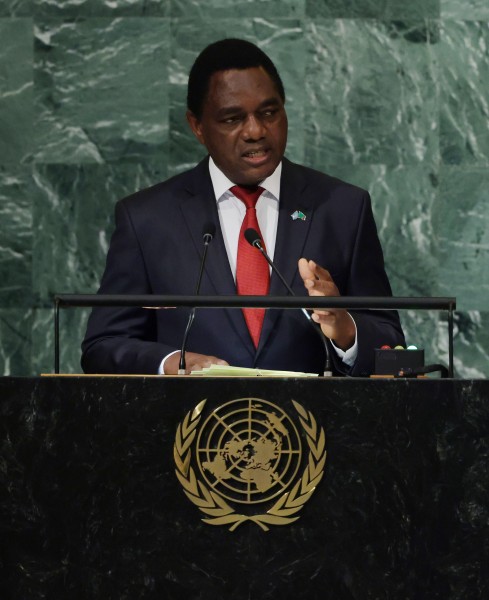Fred M’membe, owner of Zambian newspaper The Post, and an IPI World Press Freedom Hero, was released from Lusaka Central Prison this afternoon on bail of 20 million Zambian Kwacha (approx. 3,220 Euros) and the guarantee of two sureties,
The Post’s managing editor Amos Malupenga confirmed to IPI this afternoon. The Post’s lawyers have already filed papers for appeal, and the hearing is expected to begin in four to eight weeks, legal counsellor George Chisanga told IPI today.
M’membe spent the weekend in jail following his conviction last week of “contempt of court,” in connection with an op-ed by Cornell University professor Muna Ndulo published by The Post on 27 August 2009.
On Friday 4 June, M’membe was sentenced to four months in prison with hard labour. The Post newspaper was also found guilty of contempt, and, bizarrely, sentenced to four months simple imprisonment – which are to be served by M’membe concurrently with his own sentence.
The contempt charge was levied after The Post ran an op-ed by Ndulo branding an ongoing “obscenity” case against The Post’s news editor, Chansa Kabwela, as “a comedy of errors.” The op-ed was run after the magistrate in the Kabwela case had warned the media not to prejudice the outcome of Kabwela’s trial. Kabwela had been arrested for distributing obscene material in July 2009, a month after she sent two photographs of a woman giving birth in the street to the Zambian Health Minister and other officials. The allegedly “obscene” photos were meant to highlight the consequences of a nurses’ strike; they were never published in the newspaper.
In October, a magistrate ruled that Kabwela had no case to answer, because the photographs were not obscene. However, the contempt charge against Fred M’membe and The Post remained. In his ruling on Friday, Magistrate David Simusamba ruled that Ndulo’s op-ed did indeed constitute ‘contempt’, because it discussed whether the photographs in question were obscene.
IPI protested both the charges against Chansa Kabwela, and the related contempt charges brought against Fred M’membe and The Post. It appears from the circumstances of these cases that the Zambian government is targeting Fred M’membe and The Post because of the private newspaper’s highly critical stance against current Zambian President Rupiah Banda and his political party, the ruling Movement for Multiparty Democracy (MMD).
It is widely believed that Kabwela’s arrest in July 2009 was prompted by remarks from President Banda, who said that whoever took the photos (the pictured woman’s husband, as it turns out) is “morbid and peculiar.” The President added that he hoped that there are laws in Zambia to “stop the young men taking pornographic [sic].”
Furthermore, the prosecution’s first move during the Kabwela trial was to accuse The Post of “contempt of court,” claiming that an opinion piece from press freedom organization “Reporters without Borders” published in The Post on 14 July was prejudicial to the outcome of the trial. In response, Kabwela’s layers pointed out that the government-controlled Times of Zambia had also published a letter from the defendant, which could have had an effect on court proceedings. The lawyers also noted that President Banda’s comments on the case could have had an effect as well.
It was then that the magistrate warned the media to be “mindful of what the law states,” and be careful not to write anything that would prejudice the outcome of the trial. Section 116 (1)(d) of the Zambian penal code criminalizes speech or writing that could prejudice opinion regarding an ongoing judicial proceeding.
“IPI believes this law has now shown itself to be detrimental to press freedom in Zambia, because prosecutors can use this provision at any time to target media who are reporting on ongoing court cases,” said IPI Deputy Director Alison Bethel McKenzie. “Like contempt of court laws in many countries, this provision has provided a tool for the government in its assault on a publication. Every branch of the government, including the judiciary, should be subjected to the scrutiny of the public, and it is the media’s job to provide varying viewpoints. Journalists should never be jailed for publishing an editorial.”


